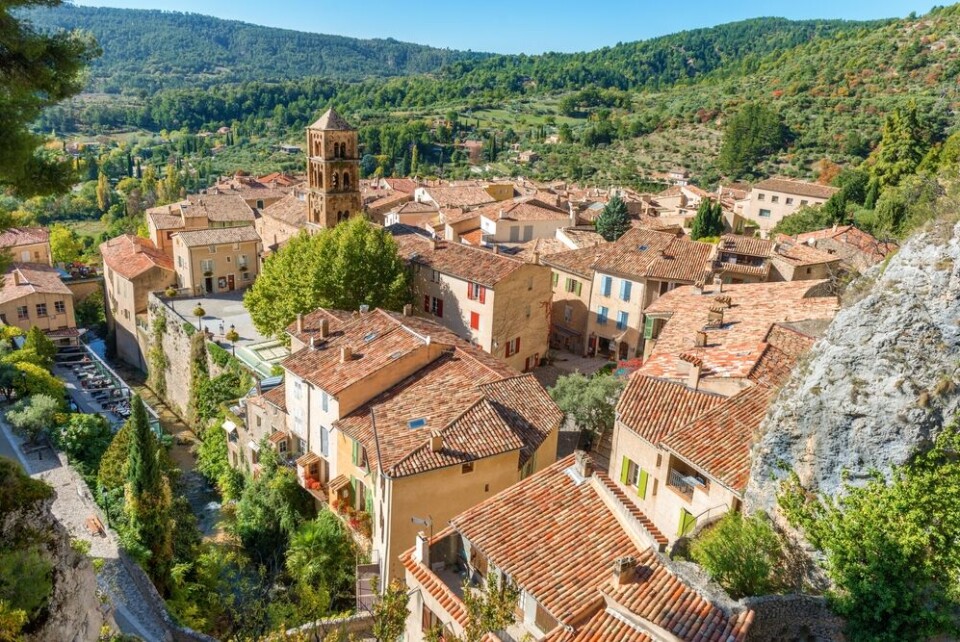-
New agreement to help with home renovations launches in Dordogne
The plan aims to connect citizens with local public renovation services to modernise old housing stock
-
Hosting scheme in south-west France lets newcomers sample lifestyle
Households in nine Dordogne communes volunteer under Mes Nouveaux Voisins scheme
-
How many Americans live in Paris - and where else are they choosing in France?
Over a quarter of all US nationals in France live in the capital city
How to find out more about an area in France before you move there
Platforms abound on ways to tell if a town or neighbourhood might be suitable for you

Platforms to help people find out more about different neighbourhoods in France are becoming increasingly common, and may help if you are thinking of buying or renting a property in the area.
With criteria across multiple factors, including safety, healthcare, leisure facilities, quality of life, education, and transport links, the sites can help you get a feel for the city, town, or village, and answer key questions about what it could be like to live there.
In most cases, the platforms will offer more objective information than you might receive from asking friends or looking at the local area’s Facebook pages.
Bien Dans Ma Ville
Since 2015, this free platform has been compiling data on almost 34,965 communes, and 2,000 neighbourhoods. It uses a mix of publicly available data, such as from the state statistics bureau Insee, as well as comments from residents.
Its data categories include statistics on safety, leisure facilities, environmental concerns, employment levels, the average annual income of residents, and the types of jobs they have.
This site is particularly focused on crime rates: it shows the exact data for physical and sexual assault reports, as well as the number of reported thefts and break-ins (and whether these figures are rising or decreasing).
GoodPlaceTo.Live
This online site and app, founded by Frenchman Sébastien Larouge, aims to give a detailed-but-simple look at a certain area.
It presents scores for factors including safety, access to healthcare, schools, and local community services. It also shows the types of companies and services that exist around the home. It also shows other factors including the typical weather, access to major roads, and the average age of residents.
There is a fee to see some extra scores, such as the area’s tendency to flood, the level of pollution, or the average number of break-ins.
“We wanted the buyer or tenant to be on an equal footing with the seller, by providing them with all the relevant information so that they are not taken for a ride before making a commitment or investing,” Mr Larouge said to Les Echos Start.
The site uses “millions of data points” from available government sources, as well as “know-how about the property market”, he said.
Ville Idéale
This site is based on residents’ opinions and ratings out of 10. Its categories include safety, health, transport access, quality of life, education, culture, environment, and local commerce.
Comments are grouped by negative and positive, so users can take a look at the good - and not-so-good - aspects of the area.
With more than 84,610 reviews, and 8,110 towns, it may offer some real insights from locals about any given location.
In a recent ranking, the site put Antony (Hauts-de-Seine) on top, with an overall score of 8.28 out of 10. This was followed by Aix-les-Bains (Savoie), with 8.25; and Saint-Maur-des-Fossés (Val-de-Marne) in third place, with 8.21.
However, unlike some others, this site does not use any objective data to compile its information, so it may present views that are very subjective and/or not based in fact.
Ville de Rêve
The website VilledeReve.fr (which translates as ‘dream town’) has a vast database of more than 34,900 towns across France, and is based on a wide range of official statistics on everything from health to leisure facilities to safety.
The ranking particularly rewards the factors of dynamism, environment, attractiveness, sustainability, the fitness and good health of residents, and heritage.
In its most recent official ranking, it put Villard-de-Lans (Isère), Gérardmer (Vosges), and Guérande (Loire-Atlantique) on the top three spots.
Other rankings
Other rankings to the ‘best places to live’ are regularly published in France, providing extra information for property-seekers.
One high-profile list is the newspaper Le Journal du Dimanche, which publishes an annual Top 500 ranking of “the towns in France where it is good to live” (villes de France où il fait bon vivre), with more than 2,000 residents.
This is published in partnership with the Villes et villages où il fait bon vivre association. In its most recent edition, it considered 187 criteria in eight key areas - education, shops and services, health, sports and leisure, solidarity, quality of life, and transport - using data provided by national statistics office Insee to rank the 34,808 municipalities in France.
For 2024, it put Angers (Maine-et-Loire) on top, followed by Bayonne, and Biarritz (both Pyrénées-Atlantiques). In its smaller villages ranking, it listed Guéthary (Pyrénées-Atlantiques) in first place.
In October 2021, another ranking published by Le Figaro ranked towns and cities by health - with Albi (Tarn), Tarbes (Hautes-Pyrénées), and Bordeaux (Gironde) on top.
The same month, Le Figaro also published another list of the top 50 towns - this time through the lens of which would be best for retirees - with Andernos-les-Bains (Gironde), Arcachon (Gironde), and Vannes (Morbihan) in the top three.
And if beauty is more your priority, the annual Plus Beaux Villages de France ranking may be more up your street (maybe literally). It ranks 32 criteria, including heritage, history, architecture and the environment. In 2023, it put Entrevaux (Alpes-de-Haute-Provence) and Saorge (Alpes-Maritimes) in the top spots.
Related articles
Top 500 best places to live in France - is your commune on the list?
Two more villages awarded prestigious ‘most beautiful in France’ title
Top 100 ranking: The healthiest towns or cities in France to live in
























